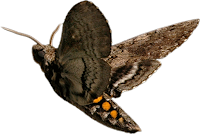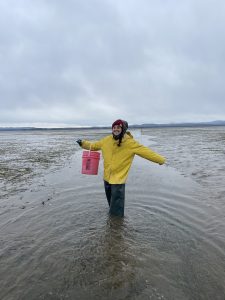Introducing our cohort of first-year grad students! In this series of three posts, we’ll be featuring several of the students from the entering cohort of 2015. The department has such a wide range of research, it’s impossible to fit it all into one post. Congrats to the First Years on making it through your first quarter in the program! Read Volume 3 (Issue 1), Volume 3 (Issue 2)
Ryo Okubo is generally interested in studying chemical ecologyand is currently focusing on studying the interactions between the blunt-leaved rein orchid, Platanthera obtusata, and their pollinators, Aedes spp. mosquitoes. Ryo chose UW because of his interest in combining his experiences in ecology and olfactory neurobiology under the instruction of Jeff Riffell. Ryo is also extremely happy with choosing UW because of the emphasis on the collaborative and interdisciplinary nature of the department. He also enjoys the nature that the state of Washington has to offer and is excited about working in the field for his project this next summer.

Lyda Harris is from from Tucson, Arizona, having recently graduated from University of Chicago where she studied biology and art. Even though she has never lived near an ocean, she has been fascinated with marine ecology her whole life. Lyda is interested in how multiple anthropogenic stressors like ocean acidification, warming waters, and microplastics affect bioindicators and foundation species, such as mussels. Specifically, she is interested in learning what implications mussel biomechanics might have for intertidal community structure, species richness, and the shellfish industry. She is in Emily Carrington‘s lab and looks forward to spending time up at FHL this summer!
Jeremy Chan’s academic journey in chemistry and biology has taken him from Singapore to Eugene OR, to Victoria BC. He is passionate about plants and chemistry, and chose to come to UW to be part of a collaborative project between Jeff Riffell, and Joel Thornton from the Department of Atmospheric Sciences. He will be studying the effects of atmospheric chemical reactions on odor mediated plant-pollinator interactions. Floral odor is singularly important in attracting pollinators from long distances, as shown in the picture where a specimen of western skunk cabbage has successfully attracted a pollinator. Jeremy is impressed by the degree of collaboration amongst top-notch faculty across departments at UW, and by the friendliness and helpfulness of the faculty and administration. He has found the environment in the department to be highly intellectually stimulating and motivating, with its community of brilliant biologists who engage in spirited conversations, biological or philosophical with equal gusto. Here one finds the expertise, resources, infrastructure, and most importantly, a vibrant and close-knit community of scientists which supports and inspires discovery in science. After a hard day’s work, Jeremy often enjoys tasty microbrews with his colleagues, as well as the many events of the lively Seattle arts scene, and the enchanting beauty of the mountains, rain forests, and coast of the Pacific Northwest.

Ryan McGee is interested in understanding natural evolutionary processes and harnessing the power of these processes to solve real-world problems across science and engineering. Biological organisms have the unrivaled ability to make sense of complex environments by integrating multiple forms of information. On one time scale, adaptation fixes information about the selective environment in the genome, which shapes the development of systems that process environmental data on another time scale. Ryan is exploring the role that information processing has in evolution and how biological computation systems evolve. To address such questions, he intends to use a combination of experimental, theoretical, and computational approaches. Ryan is excited to begin working on these problems as a new member of the Bergstrom lab and in collaboration with other groups in the Biology department and across the university.

After completing both his bachelor’s in mechanical engineering and master’s in biology from the University of California, Irvine with Catherine Loudon, Jorge Bustamante, Jr. decided to continue pursuing his interests in insect biomechanics in the Daniel lab. Jorge is interested in how hawkmoths sense abdominal actuation as a feedback mechanism for flight stabilization and how this can potentially impact ecology. He decided to attend UW because he wanted study under the guidance of Tom Daniel–an academic descendant of the late great Steven Vogel–because he felt that the laboratory was an appropriate fit in both academics and pun-ery. Jorge finds the faculty of UW biology to be welcoming, understanding, and the proper environment for education to thrive. He looks forward to the challenges that he will face in the coming years. (More from Jorge)


